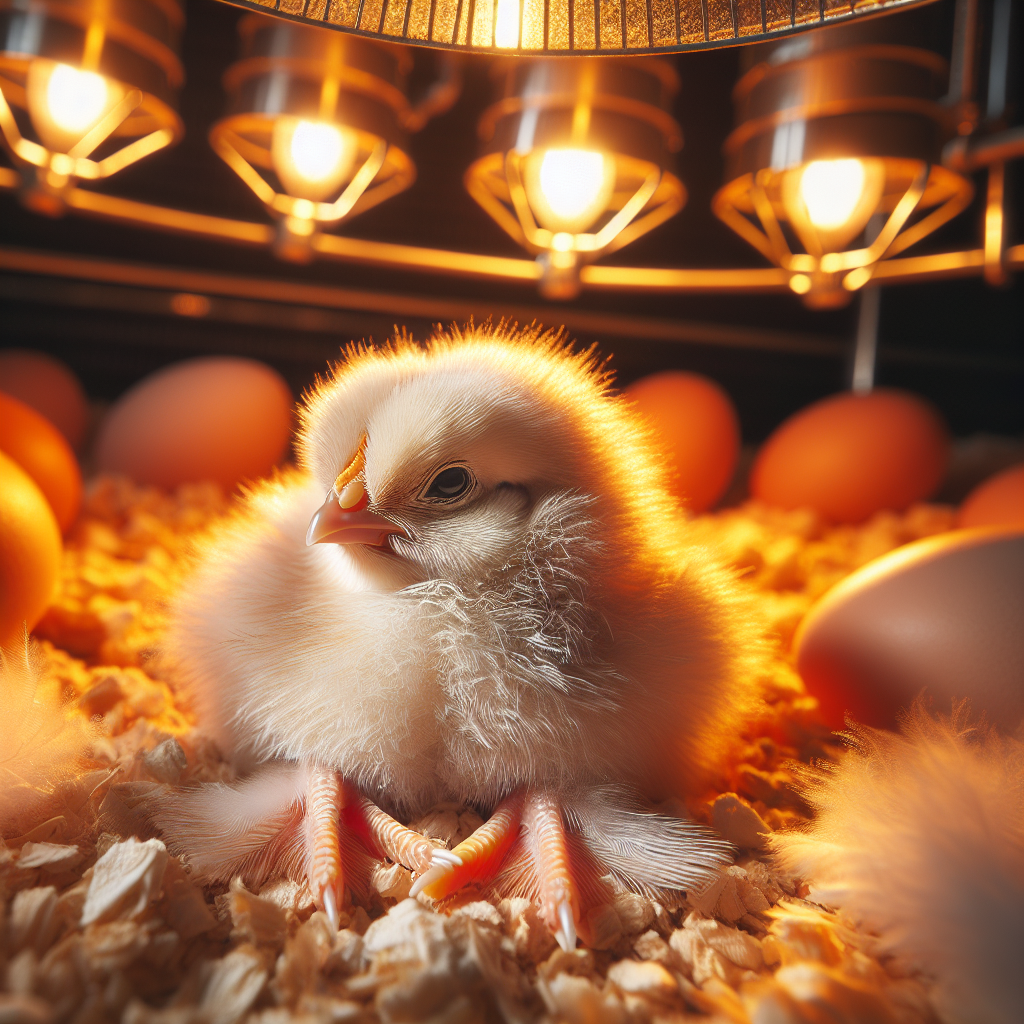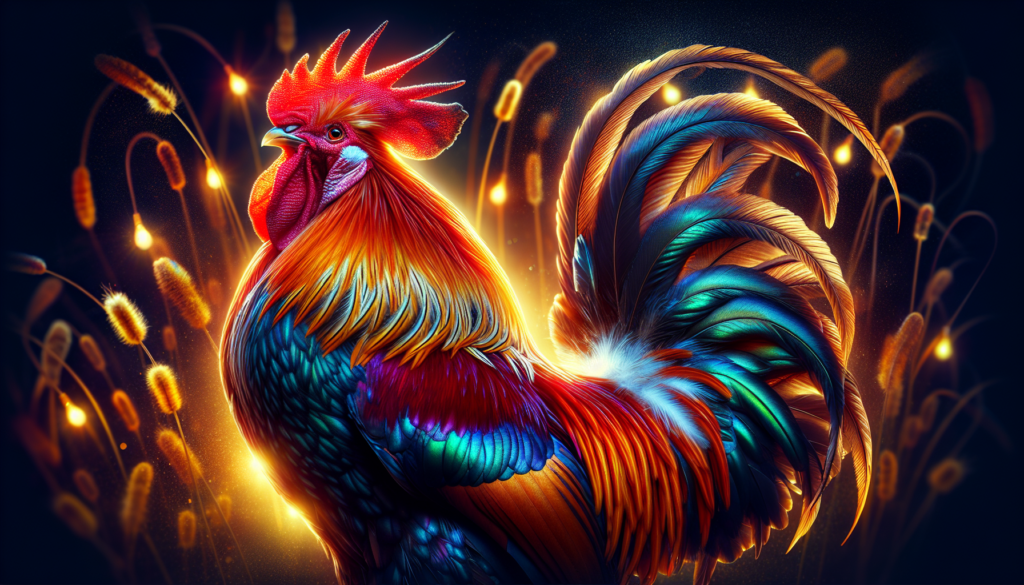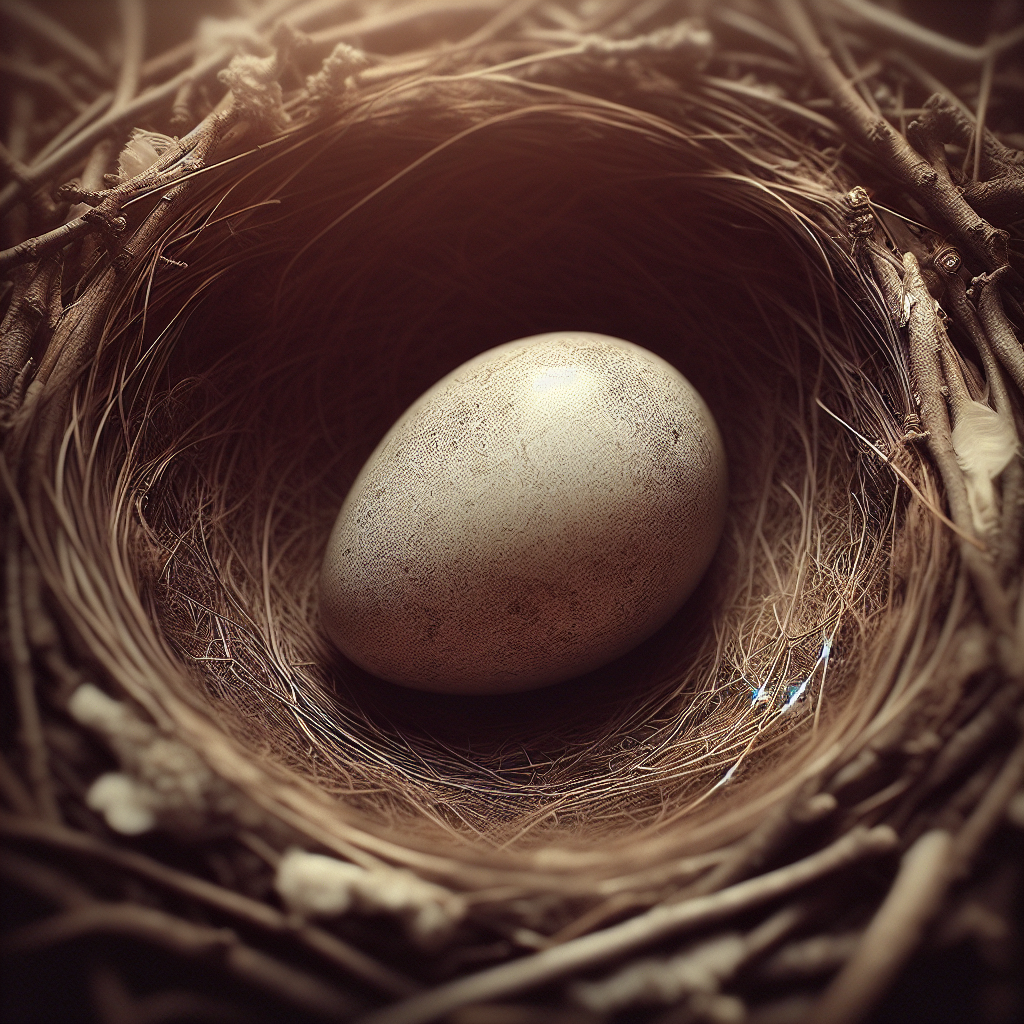So you’ve got a bunch of cute little chicks freshly hatched, and now you want to make sure they grow up happy and healthy. Well, worry not, because in this article we’ll be covering all the essential tips and tricks to keep those little fluffballs safe and thriving. From creating a cozy and comfortable brooder environment to providing the right nutrition and protecting them from potential hazards, we’ve got you covered. So let’s jump right in and learn how you can ensure the health and safety of those adorable chicks post-hatching!
Importance of Health and Safety
Ensuring the health and safety of your chicks is of utmost importance. By taking the necessary precautions and implementing proper measures, you can prevent the occurrence of infectious diseases, provide them with adequate nutrition, maintain optimal temperature conditions, and ensure proper ventilation. These factors are crucial for the well-being and growth of your chicks.
Preventing Infectious Diseases
One of the key aspects of maintaining the health of your chicks is preventing the spread of infectious diseases. This can be achieved through strict biosecurity measures. By implementing practices such as disinfecting the brooder area before the arrival of the chicks, limiting access to the area, and ensuring that anyone who comes into contact with the chicks follows proper hygiene protocols, you can significantly reduce the risk of disease transmission.
Providing Adequate Nutrition
Proper nutrition is essential for the growth and development of your chicks. Offering a balanced diet that meets their nutritional requirements is crucial. From the beginning, provide them with a high-quality chick starter feed that contains the necessary nutrients such as proteins, vitamins, and minerals. Regularly check and ensure that they have access to fresh, clean water, as hydration is also vital for their overall health.
Maintaining Optimal Temperature
Maintaining the right temperature for your chicks is crucial, especially during the first few weeks of their lives. By providing a warm and comfortable environment, you can ensure that they are able to regulate their body temperature effectively. The brooder area should be properly insulated and equipped with heat sources such as heat lamps or heaters. Regularly monitor the temperature inside the brooder and make adjustments as needed to provide a consistent and optimal temperature.
Ensuring Proper Ventilation
Proper ventilation is essential for the overall health and well-being of your chicks. It helps remove excess heat, humidity, and ammonia from the brooder area, preventing respiratory diseases and promoting better air quality. Ensure that the brooder area has enough ventilation openings to allow for adequate airflow without causing drafts. Regularly check and clean the vents or windows to prevent blockages and maintain a healthy environment for your chicks.
Creating a Safe Environment
Creating a safe environment for your chicks is essential to minimize the risk of injuries and stress. By preparing the brooder area properly, choosing the right brooder equipment, controlling noise and disturbances, and implementing biosecurity measures, you can ensure their safety and well-being.
Preparing the Brooder Area
Before the arrival of your chicks, prepare the brooder area to ensure a safe and comfortable space for them. Clean the area thoroughly and disinfect all surfaces to eliminate any potential pathogens. Ensure that the area is well-insulated, free from drafts, and has proper bedding material to provide a comfortable and hygienic environment. Secure the brooder area to prevent any potential escape or intrusion from predators.
Choosing the Right Brooder Equipment
Selecting the appropriate brooder equipment is essential to create an optimal environment for your chicks. Choose a brooder that is suitable for the number of chicks you have and provides adequate space for them to move around comfortably. Ensure that the equipment is clean, in good working condition, and meets all necessary safety standards. By using the right equipment, you can minimize the risk of accidents and injuries.
Controlling Noise and Disturbances
Chicks are sensitive to loud noises and sudden disturbances, which can cause stress and affect their health. Keep the brooder area in a quiet and peaceful location, away from loud machinery or high traffic areas. Minimize unnecessary noise and disturbances, and create a calm environment for your chicks to thrive. By providing a stress-free environment, you can ensure their overall well-being.
Implementing Biosecurity Measures
Biosecurity measures are crucial to prevent the introduction and spread of diseases in your flock. Limit the access to the brooder area only to essential personnel and thoroughly clean and disinfect any equipment or tools used in the brooder area. Implement a strict protocol for handwashing and changing clothes before entering the brooder area to minimize the risk of disease transmission. Regularly monitor for any signs of illness or disease and take immediate action to prevent further spread.
Monitoring and Observation
Regular monitoring and observation of your chicks are essential to identify any signs of illness or distress early on, allowing for prompt intervention. By conducting regular health checks, carefully observing their behavior and growth, and addressing any issues that may arise, you can ensure the health and well-being of your chicks.
Regular Health Checks
Performing regular health checks on your chicks is crucial in detecting any potential health problems. Inspect their overall appearance, including their feathers, eyes, beak, and vent, for any signs of illness, injury, or abnormalities. Monitor their poop consistency and color, as any changes can indicate an underlying issue. Regularly weigh your chicks to ensure healthy growth and development. By conducting regular health checks, you can catch any health issues early on and provide appropriate care.
Monitoring Behavior and Growth
Observe the behavior of your chicks closely to ensure their well-being. Healthy chicks will be active, alert, and curious. If you notice any signs of abnormal behavior, such as lethargy, loss of appetite, or excessive huddling, it may indicate a health problem. Additionally, monitor their growth and compare it to the expected growth rates for their breed and age. Any significant deviations from the norm should be addressed promptly.
Identifying and Addressing Issues
If you notice any signs of illness, injury, or abnormal behavior in your chicks, it is crucial to take immediate action. Isolate any sick or injured chicks to prevent disease transmission and provide them with appropriate care. Consult with a poultry veterinarian if needed to diagnose and treat any health issues. Prompt intervention can help prevent the spread of diseases and ensure the recovery and well-being of your chicks.
Proper Feeding and Hydration
In order to promote optimal growth and development, it is crucial to provide your chicks with proper feeding and hydration. By offering clean water, feeding a balanced diet, and avoiding overfeeding, you can ensure their nutritional needs are met.
Offering Clean Water
Clean and fresh water is essential for the health and hydration of your chicks. Provide them with clean water at all times, ensuring that it is easily accessible. Regularly monitor the water supply for any debris, such as feed or feathers, and clean and refill the water containers as necessary. By providing clean water, you can prevent the risk of bacterial contamination and promote good health.
Feeding a Balanced Diet
Feeding your chicks a balanced diet is crucial for their growth and development. Start with a high-quality chick starter feed that is specifically formulated to meet their nutritional requirements. The feed should contain the necessary proteins, vitamins, minerals, and other essential nutrients. As your chicks grow, gradually transition to a grower feed that is suitable for their age and breed. Follow the recommended feeding guidelines provided by the feed manufacturer to ensure proper nutrition.
Avoiding Overfeeding
Overfeeding can lead to various health problems, including obesity and digestive issues. It is important to provide your chicks with the appropriate amount of feed according to their age and breed. Avoid leaving excessive feed in the brooder area, as it can attract pests and contribute to unsanitary conditions. Regularly monitor their feed intake and adjust accordingly. By avoiding overfeeding, you can maintain a healthy weight and overall well-being for your chicks.
Managing Temperature and Humidity
Maintaining the right temperature and humidity levels is crucial for the comfort and health of your chicks. By providing a warm and comfortable environment, monitoring the temperature, and maintaining proper humidity levels, you can ensure their well-being.
Providing a Warm and Comfortable Environment
Chicks require a warm environment to regulate their body temperature effectively, especially during the first few weeks of their lives. Provide them with a brooder area that is properly insulated and equipped with heat sources such as heat lamps or heaters. Create a comfortable space by using bedding material that is clean, dry, and non-toxic. By providing a warm and comfortable environment, you can help your chicks thrive.
Monitoring Temperature and Adjusting as Needed
Regularly monitor the temperature inside the brooder area to ensure it remains at an optimal level. Use a reliable thermometer to measure the temperature and make adjustments as needed. The ideal temperature for newly hatched chicks is around 95-100°F (35-38°C), and it can be gradually reduced by 5°F (2°C) per week as they grow older. Ensure that there are areas within the brooder where chicks can move away from the heat source if they feel too warm. By maintaining the right temperature, you can help prevent issues such as chilling or overheating.
Maintaining Proper Humidity Levels
Proper humidity levels are important for the respiratory health of your chicks. Aim for a humidity level of around 50-60% during the first week and gradually decrease to around 40-50% as they grow older. Monitor the humidity using a hygrometer and adjust as needed. Provide appropriate sources of humidity, such as water containers or wet sponges, to maintain the desired levels. By ensuring proper humidity, you can prevent issues such as dehydration or respiratory problems.
Promoting Good Hygiene
Maintaining good hygiene practices in the brooder area is crucial for the health and safety of your chicks. By keeping the brooder area clean, removing fecal matter regularly, and preventing cross-contamination, you can minimize the risk of disease transmission and create a healthy environment for your chicks.
Keep the Brooder Area Clean
Regularly clean the brooder area to remove any accumulated dirt, waste, or spilled feed. Thoroughly sweep or vacuum the floor, walls, and equipment to eliminate dust or debris. Wash and disinfect all surfaces using a poultry-safe disinfectant to kill any potential pathogens. Regular cleaning helps prevent the growth of harmful bacteria and maintains a hygienic environment for your chicks.
Removing Fecal Matter Regularly
Fecal matter can quickly accumulate in the brooder area and lead to unsanitary conditions. Regularly remove any droppings from the bedding material or the floor to prevent the spread of diseases. Replace soiled or wet bedding material with fresh, clean bedding to maintain cleanliness. Proper waste management is essential for preventing the build-up of harmful bacteria and parasites.
Preventing Cross-Contamination
Cross-contamination can occur when disease-causing agents are transferred from one area to another. To prevent this, have dedicated tools and equipment for use in the brooder area, and avoid sharing them with other areas or animals. Clean and disinfect tools and equipment after each use to prevent the spread of pathogens. Practice good hand hygiene by washing your hands thoroughly before and after handling your chicks. By preventing cross-contamination, you can ensure the health and safety of your flock.
Preventing Injuries
Creating a safe environment for your chicks involves taking measures to prevent injuries. By ensuring safe flooring, removing sharp objects, and preventing crowding and trampling, you can minimize the risk of accidents and injuries.
Ensuring Safe Flooring
Providing a safe flooring surface is essential to prevent injuries in your chicks. Avoid flooring materials that are slippery or have gaps where chicks can get stuck. Choose a bedding material that is non-toxic, absorbent, and provides cushioning to protect their delicate feet. Regularly check the flooring for any hazards, such as wet or dirty spots, and clean or replace as necessary. By ensuring safe flooring, you can minimize the risk of falls and injuries.
Removing Sharp Objects
Sharp objects in the brooder area can cause injuries to your chicks. Regularly inspect the brooder area and remove any sharp objects, such as nails, wire, or broken equipment. Ensure that the brooder equipment, such as feeders and waterers, do not have any sharp edges or protruding parts that can harm the chicks. By removing sharp objects, you can create a safe environment free from potential hazards.
Preventing Crowding and Trampling
Overcrowding can lead to stress, aggression, and trampling among your chicks. Provide enough space for each chick to move around comfortably. Avoid overcrowding the brooder area and ensure that the chicks have sufficient space to explore, eat, and rest. Monitor their behavior closely, as any signs of excessive pecking or aggression may indicate overcrowding. By preventing crowding and trampling, you can promote a peaceful and safe environment for your chicks.
Socialization and Stimulation
Socialization and stimulation are crucial for the well-being and development of your chicks. By encouraging interaction, providing enrichment, and avoiding isolation, you can promote their overall health and happiness.
Encouraging Interaction
Chicks are social animals and benefit from interaction with their flockmates. Provide enough space for the chicks to move around and engage in natural behaviors. Avoid isolating individual chicks unless necessary for health reasons. Observe their interactions and intervene if any bullying or aggressiveness occurs. By encouraging positive socialization, you can help them develop healthy social bonds and reduce stress.
Providing Enrichment
Enrichment activities are important for the mental and physical stimulation of your chicks. Provide various environmental stimuli such as perches, toys, or branches for them to explore and interact with. Scatter treats or feed around the brooder area to encourage foraging behavior. Rotate and introduce new enrichment items regularly to keep them engaged. By providing enrichment, you can prevent boredom and promote natural behaviors.
Avoiding Isolation
Isolation can have negative effects on the well-being of your chicks. Avoid keeping individual chicks alone for extended periods unless necessary for health reasons. Chicks thrive in the presence of their flockmates, and isolation can lead to stress and behavioral issues. Provide a suitable social environment where they can interact and learn from each other. By avoiding isolation, you can promote their social development and overall well-being.
Addressing Common Health Issues
Despite your best efforts, your chicks may encounter common health issues. By familiarizing yourself with common diseases, dealing with parasites, and addressing nutritional deficiencies, you can ensure timely intervention and appropriate care.
Diagnosing and Treating Common Diseases
Being aware of common poultry diseases is essential in identifying any potential health issues in your chicks. Watch for signs such as lethargy, loss of appetite, abnormal droppings, respiratory symptoms, or unusual behavior. If you suspect that your chicks have contracted a disease, consult with a poultry veterinarian for an accurate diagnosis and treatment plan. Prompt intervention is crucial in preventing further spread and managing the health of your flock.
Dealing with Parasites
Parasites, such as lice or mites, can cause discomfort and health issues in your chicks. Regularly inspect your chicks for any signs of parasites, such as itching, feather loss, or irritated skin. If infestations are detected, consult with a poultry veterinarian for the appropriate treatment. Proper cleaning and disinfection of the brooder area and regular inspection of your flock can help prevent parasite infestations.
Addressing Nutritional Deficiencies
Nutritional deficiencies can lead to various health problems in your chicks. Monitor their growth and behavior closely, as any signs of stunted growth, poor feather quality, or weakness may indicate nutritional deficiencies. Consult with a poultry veterinarian or a poultry nutritionist to assess their diet and identify any nutrient gaps. They may recommend dietary supplements or adjustments to ensure optimal nutrition. By addressing nutritional deficiencies, you can support the healthy growth and development of your chicks.
Seeking Veterinary Care
Despite your best efforts in providing optimal care for your chicks, there may be times when professional veterinary care is required. By establishing a relationship with a poultry veterinarian and knowing when to seek professional help, you can ensure timely intervention and expert guidance.
Having a Relationship with a Poultry Veterinarian
Establishing a relationship with a poultry veterinarian is crucial for the health and safety of your flock. Find a veterinarian who is experienced in poultry care and has knowledge of common chicken diseases and treatments. Schedule regular check-ups and consultations to assess the overall health of your chicks and to address any concerns or questions you may have. A trusted veterinarian can provide valuable guidance and support in maintaining the health of your flock.
Knowing When to Seek Professional Help
While you can address many health issues on your own, there may be situations where professional help is necessary. If you notice any severe or persistent symptoms, such as difficulty breathing, severe injuries, or drastic changes in behavior, seek veterinary care immediately. A poultry veterinarian will be able to provide a proper diagnosis and recommend appropriate treatment options. When in doubt, it is always best to seek professional help to ensure the well-being of your chicks.
In conclusion, ensuring the health and safety of your chicks post-hatching requires attention to various aspects such as preventing infectious diseases, providing adequate nutrition, maintaining optimal temperature and humidity conditions, promoting good hygiene, preventing injuries, and addressing common health issues. By following the guidelines and best practices outlined in this article, you can create a safe and healthy environment for your chicks, promoting their overall well-being and growth. Remember to monitor and observe their health, provide proper feeding and hydration, manage temperature and humidity levels, promote good hygiene practices, prevent injuries, encourage socialization and stimulation, and seek veterinary care when needed. With proper care and attention, you can raise healthy and happy chicks.




